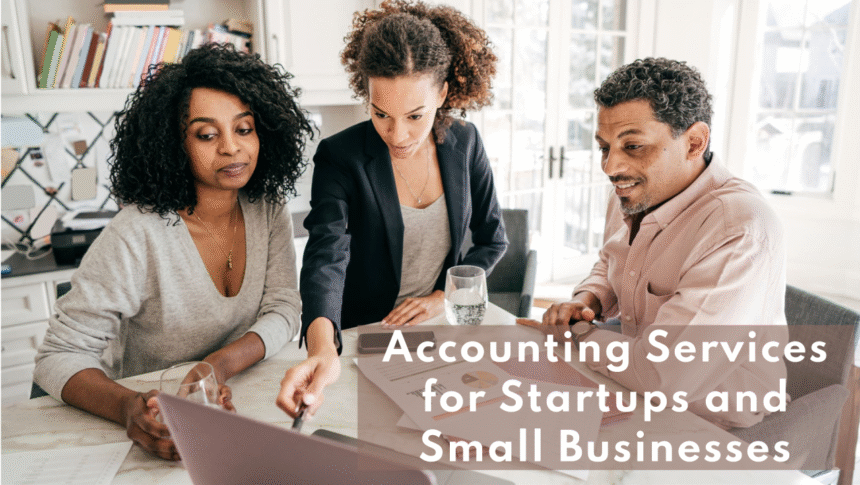Accountants for startups and small businesses aren’t just number-crunchers who file your tax returns. They’re the difference between knowing where your money’s going and guessing. And if you’re running a new business in the UK, that difference matters.
Here’s the reality: most founders are brilliant at what they do. Building products, solving problems, creating things people want. But managing finances? That’s a different game entirely. And it’s one you can’t afford to lose.
The Numbers Don’t Lie
Over 316,000 businesses launched in the UK last year. Sounds promising, right? But here’s the bit nobody talks about: a fifth of them won’t make it past year one. By year five, only 40% are still trading.
When you dig into why they fail, it’s rarely about bad ideas or weak products. It’s money. Running out of cash. Not tracking where it’s going. Making decisions blind because the numbers aren’t there.
What Business Structure Should You Pick?
Before you even think about bookkeeping, you need to make one critical call: sole trader or limited company?
Sole Trader: The Simple Route
Register with HMRC, file a Self-Assessment once a year, done. You’ll pay Income Tax on your profits starting at 20%, jumping to 40% above £50,270, and 45% past £125,140. Setup costs almost nothing. Paperwork’s minimal.
But there’s a catch. Your personal assets are on the line if things go wrong. And if you want serious investment, most backers won’t touch a sole trader setup.
Limited Company: More Admin, Better Protection
You’ll pay Corporation Tax at 25% on profits (19% under £50,000). That’s significantly less than higher-rate Income Tax. Your personal stuff stays protected if the business hits trouble. And investors actually want to put money into a limited company structure.
Setting up takes about 24 hours through Companies House for £12. But once you’re incorporated, you’re committed to annual accounts, confirmation statements, and Corporation Tax returns.
When should you incorporate? If you’re making over £50,000 profit, planning to hire people, or looking to raise investment, the limited company route starts making proper sense. The tax savings alone often cover the extra accountancy costs.
Getting Your Accounting System Right
So how do you actually set this up? Let’s break it down.
Open a Business Bank Account Now
Don’t mix personal and business money. Research shows startups that open dedicated business accounts in their first month face far fewer tax headaches later. It keeps everything clean and makes life easier when tax time rolls around.
Pick Your Accounting Method
This matters more than most founders realise.
Cash basis accounting records transactions when money actually moves. You get paid? Record it. You pay a bill? Record it. Simple. Works for sole traders earning under £150,000 yearly.
Accrual accounting records transactions when they happen, not when cash moves. Invoice someone in March but get paid in April? Record the income in March. This gives a truer picture of your finances. Limited companies must use this method.
Get Proper Software
Roughly three-quarters of UK startups now use cloud-based tools like Xero, QuickBooks, or FreeAgent. And there’s a reason for that. These platforms automate the boring bits, cut down on errors, and show you what’s happening with your money right now.
What should you look for?
- Bank integration that pulls transactions automatically
- Easy invoice creation and tracking
- VAT return filing if you’re registered
- Multi-currency support for international trading
- Mobile app for receipt submission
- Room to grow as your business scales
Free versions exist but usually lack VAT returns and proper reporting. Expect to pay £10-30 monthly for decent startup-level software. Worth it though. Startups that automate their bookkeeping save over a hundred hours yearly. That’s nearly three weeks you could spend building your business instead.
Tax Deadlines You Can’t Miss
Miss these and you’re paying penalties:
- Self-Assessment online: 31 January
- Corporation Tax payment: 9 months and 1 day after your accounting period ends
- VAT returns: Filed quarterly
- Companies House accounts: 9 months after financial year-end
- Confirmation statement: At least once every 12 months
The UK tax year runs 6 April to 5 April. Catches out loads of first-time founders expecting a calendar-year system.
VAT Registration: When and Why
You must register at £85,000 turnover. But here’s something interesting: you can register voluntarily before hitting that threshold.
Why would you do that? If you’re buying equipment, software, or services with VAT on them, you can reclaim it. Spent £10,000 on laptops and office kit? That’s £2,000 back.
The catch: once you’re registered, you’re locked in for at least 12 months. And if you sell to consumers, they’ll see a 20% price increase unless you absorb the VAT yourself. Think it through.
Tax Reliefs Worth Knowing About
Most founders pay more tax than necessary because they don’t know what’s available.
Annual Investment Allowance
Claim 100% tax relief on equipment and assets up to £1 million. Buy laptops, office furniture, machinery, or vehicles? Deduct the full cost from your profits before calculating tax. Immediate cash flow relief.
R&D Tax Credits
Massive for tech startups. If you’re developing new products, processes, or software, you might qualify for up to 186% relief on qualifying costs. For every £100 spent on R&D, you could reduce your tax bill by £186. Many software startups qualify without realising it.
SEIS and EIS Schemes
These aren’t reliefs for you—they’re for your investors. But they make fundraising easier. Angel investors can get 50% income tax relief on SEIS investments (up to £100,000 yearly) and 30% relief on EIS investments (up to £1 million yearly). Plus capital gains tax exemptions if they hold for three years. Gold for early-stage fundraising.
Cash Flow: The Bit That Actually Kills Startups
Profit and cash flow aren’t the same thing. You can be profitable on paper whilst going bust because you’ve run out of actual money.
Use a 13-Week Cash Flow Forecast
Track what’s coming in and going out over the next three months on a weekly basis. Update it every week. Gives you early warning if you’re heading for trouble.
Factor in Payment Delays
Your customers won’t pay instantly. Standard payment terms are 30 days, but many take 45-60. Some take longer and need chasing. If you’ve got £20,000 in unpaid invoices, that’s not cash you can spend yet.
Maintain a Cash Buffer
Aim for at least one month’s operating expenses in reserve. Three months is better. This cushion protects you from unexpected costs, late-paying customers, or seasonal dips. Without it, one bad month can sink you.
Set Payment Terms That Protect You
Don’t just accept whatever customers suggest. For small orders, consider payment upfront. For larger projects, ask for 30-50% deposit before starting. Set terms at 14 days instead of 30 if you can. And chase overdue invoices weekly. Don’t be shy about this.
The Three Financial Statements You Need
Your software generates reports, but do you know what they mean?
Profit & Loss shows revenue minus expenses. Tells you if you’re making money. But it doesn’t show cash movement.
Balance Sheet shows what you own versus what you owe. Assets on one side, liabilities on the other. The difference is your equity—what the business is worth.
Cash Flow Statement tracks actual money movement. This reconciles why your bank balance doesn’t match your profit. This is the one that keeps you alive.
Check them monthly. Compare month-to-month to spot trends. And reconcile your bank statements monthly—make sure what the software says matches what your bank says.
When Should You Hire an Accountant?
Can you run without one? Technically, yes. Should you? Probably not for long.
From the start, an accountant can save you money by helping you choose the right structure. When you’re raising funds, you need professional financials. Investors want credible financial packs.
Hiring your first employee means dealing with PAYE, National Insurance, and pension auto-enrolment. Miss PAYE registration and you face automatic fines of £100 per late submission monthly.
Here’s a rough guide:
- Under £5,000 monthly turnover: DIY with software
- £5,000-£20,000 monthly: Outsourced bookkeeping plus annual accountant review
- £20,000-£50,000 monthly: Regular accountant support for tax planning
- £50,000+ monthly: Consider in-house bookkeeper with accountant oversight
Professional accountants typically save small businesses £2,000-£5,000 yearly through better tax planning and preventing errors.
What to Look For in an Accountant
Not all accountants understand startups. Look for firms with expertise in UK startup laws and funding schemes like SEIS and EIS. Check for transparent pricing—you want to know what you’re paying upfront.
Verify qualifications. ACCA-certified accountants must meet strict ethical and professional standards. And find someone who understands your business model. A firm that mainly works with restaurants won’t understand SaaS metrics.
Build Your Foundation Now
Accounting isn’t glamorous. But it’s the foundation everything else sits on. Get it right and you’ve got clarity, compliance, and the insight to grow. Get it wrong and you’re firefighting instead of building.
Start with the fundamentals: separate business account, proper software, regular bookkeeping routine. Understand your cash flow and don’t miss tax reliefs that could save you thousands. And know when to bring in professional help—it’s an investment that pays for itself.


